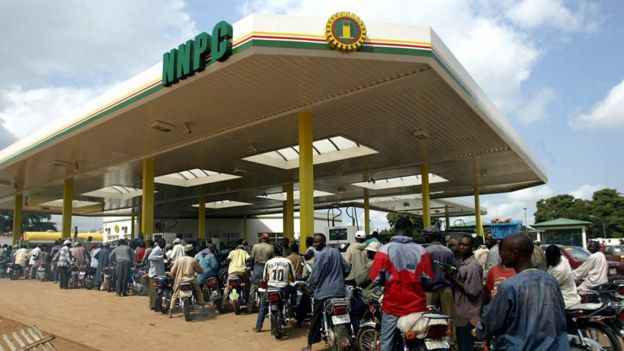Concern swept through thousands of commuters and motorists as fuel scarcity gripped numerous states across Nigeria, triggering the closure of many filling stations and sparking lengthy queues at the few outlets still dispensing petrol.
The scarcity caused a surge in transport fares in affected states, as the limited number of transporters with access to petrol raised their rates.
In states including the Federal Capital Territory (FCT), Nasarawa, Niger, Gombe, Sokoto, and Anambra, commuters encountered difficulties securing transportation due to the scarcity of PMS needed by transporters to operate their vehicles.
Transport fares skyrocketed in these states as the dwindling number of transporters with access to petrol increased their rates.
Several filling stations in Zuba, Niger State, including NNPC and AYM Shafa, among others, shuttered their doors on Wednesday due to a lack of petrol. Similarly, the NNPC outlet on Arab Road, Kubwa, Abuja, and many other stations along the Kubwa-Zuba expressway closed down. In Nyanya, Nasarawa State, numerous filling stations also ceased operations.
The inability of these stations to operate resulted in massive queues by motorists at the few stations that had PMS on hand.
The scarcity was attributed to a shortfall in the supply of PMS to the nation’s capital and neighboring states, prompting oil marketers to schedule a meeting with the management of the retail subsidiary of the Nigerian National Petroleum Company Limited to address the issue.
Acknowledging the supply shortage, oil marketers indicated that investigations were underway to determine its cause. They expressed hope that the issue would be resolved during the meeting with NNPC officials.
Chief John Kekeocha, the National Secretary of the Independent Petroleum Marketers Association of Nigeria, explained, “It is obvious that there is a supply shortage in Abuja and other states close to the FCT… I cannot tell you the reason for this supply shortage now, but we are meeting with NNPC Regal today (Thursday), and this is going to form part of our discussions.”
The situation in Anambra State was particularly dire, with thousands of commuters left stranded at motor parks due to the closure of petrol stations, leading to a surge in transportation fares. Some routes experienced fare hikes of over 200%.
In Lagos and Ogun states, residents faced similar challenges as filling stations experienced long queues, and petrol prices varied widely.










